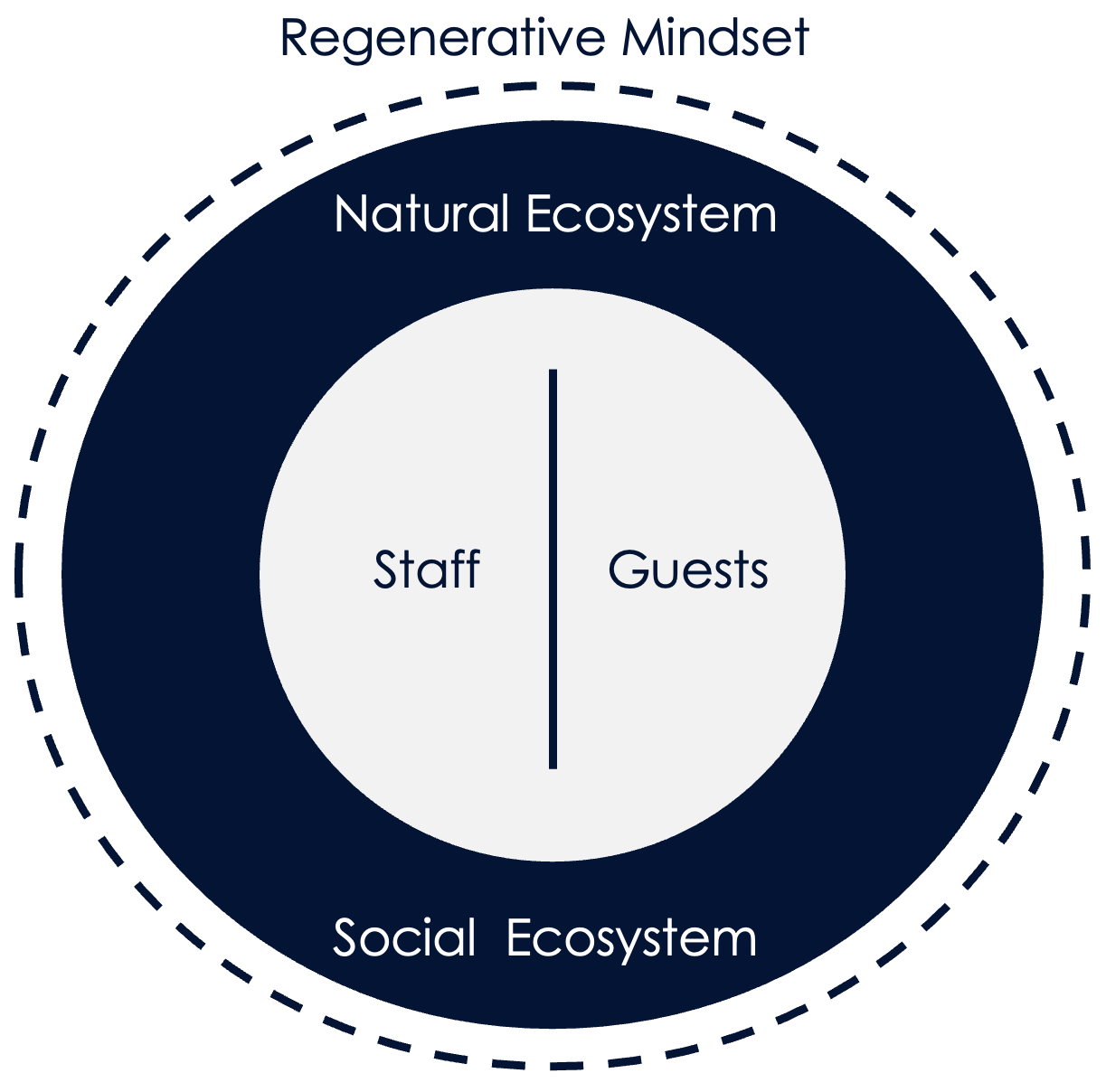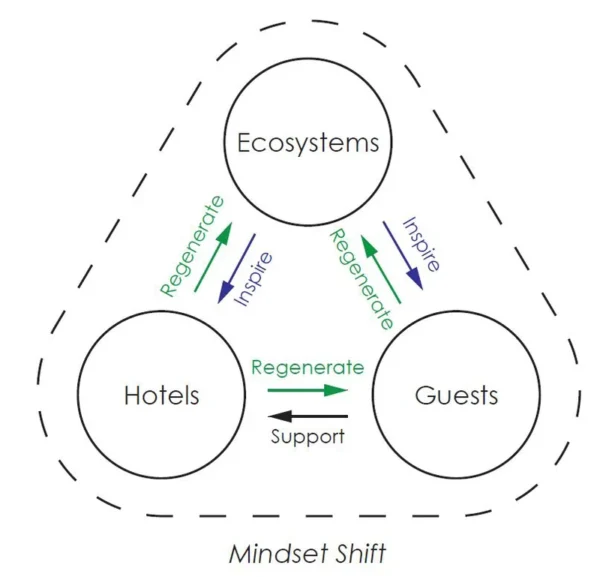What is Regenerative Hospitality?
A Responsibility Paradigm
Regenerative Hospitality sees accommodation businesses as the agents of change at the destination level: hotels and other types of accommodation are here conceptualized as building blocks of the destination system that could stimulate a net-positive impact on the wider destination.
The regenerative approach is by definition a systemic approach, and it has been rising to prominence in recent years. Following the literature in the field, it stems from an ecological and living systems world-view where the goal is to promote the conditions for all life to renew and restore fostering a net-positive mentality.
The regenerative approach is by definition a systemic approach, and it has been rising to prominence in recent years. Following the literature in the field, it stems from an ecological and living systems world-view where the goal is to promote the conditions for all life to renew and restore fostering a net-positive mentality.
Two concepts are essential to generate a better understanding of regenerative hospitality:
- The Regenerative Mindshift : an inner awareness of the hospitality entrepreneur moved by a deep connection with nature and with the community.
- An Ecosystem Approach : regeneration means to have a net-positive impact on (i) the local community's natural and social aspects (we call this Place Intelligence) and on the people, exemplified by the transformative host-guest relationship (we call this People Intelligence).
- The Regenerative Mindshift : an inner awareness of the hospitality entrepreneur moved by a deep connection with nature and with the community.
- An Ecosystem Approach : regeneration means to have a net-positive impact on (i) the local community's natural and social aspects (we call this Place Intelligence) and on the people, exemplified by the transformative host-guest relationship (we call this People Intelligence).

An Ecosystem Approach
Place Intelligence & People Intelligence
Place intelligence can be defined as a net-positive attitude towards the natural and social ecosystems around the “hospitality endeavor”. Hospitality that stresses ‘place intelligence’ is 'a means to an end' where the end is celebrating and regenerating both their natural and social ecosystem. During our projects we have been working with several organizations that demonstrated a great place intelligence. On one side for example - they were actively working on the natural ecosystem by restoring traditional plants (agriculture) or breeding indigenous species. From a nature point of view, hospitality organization establishments really see a deep and meaningful connection with their surroundings by being actors for nature preservation but also agents for net-positive restoration and regeneration. On the other side, these businesses were also social agents for change: regenerative hospitality leaders have as objective also to grow their own community through training, job creation and support of local start-ups. The establishment of a regenerative hospitality organization could therefore have a huge impact on the natural and social ecosystem in which it is active.


People Intelligence is exemplified by the net-positive relationship between hosts (and their staff) and guests, leading to the co-creation of extraordinary experiences that develop the well-being of hosts and guests. It is only thanks to the place intelligence element (i.e. the meaningful relationship with the natural and social ecosystem), that hospitality organizations can create authentic experiences for their guests. By leveraging the net-positive attitude towards the place in which they are established, regenerative hospitality leaders can create and deliver engaging and meaningful experiences for their guest catering for ‘transformation’; the more authentic the experience the more probable is the transformation of the guests.
The Regenerative Hospitality way
A four-step approach on how to implement a regenerative hospitality framework
Regenerative hospitality is ultimately a mindset shift to think about the ecosystem(s) around you and your business as an integral part of your day-to-day operations. It is about the ecological side of the place, but also it is about stakeholders and the social ecosystem as well as travelers who need to be an active part of the regenerative model.

Therefore in order to trigger regenerative hospitality a manager should:
- Adopt the right mindset
- Commit to the local stakeholders
- Build an ecosystem business model
- Involve guests in the regeneration process
Regenerative Hospitality Journey
Regenerative Hospitality Journey
This website has been built as main resource for academics and professionals working in the field of regenerative hospitality to boost the understanding of this concept as an organization orientation able to deliver value for all: value for the natural ecosystem, for the local communities alongside the hosts and – last but not least – for travellers.
The knowledge base of this website was put together by connecting together different data points across different projects carried out with great colleagues and friends. Therefore, as most of the credit goes to them, this website has also been built to showcase our collaborations and the shared outputs created together.

